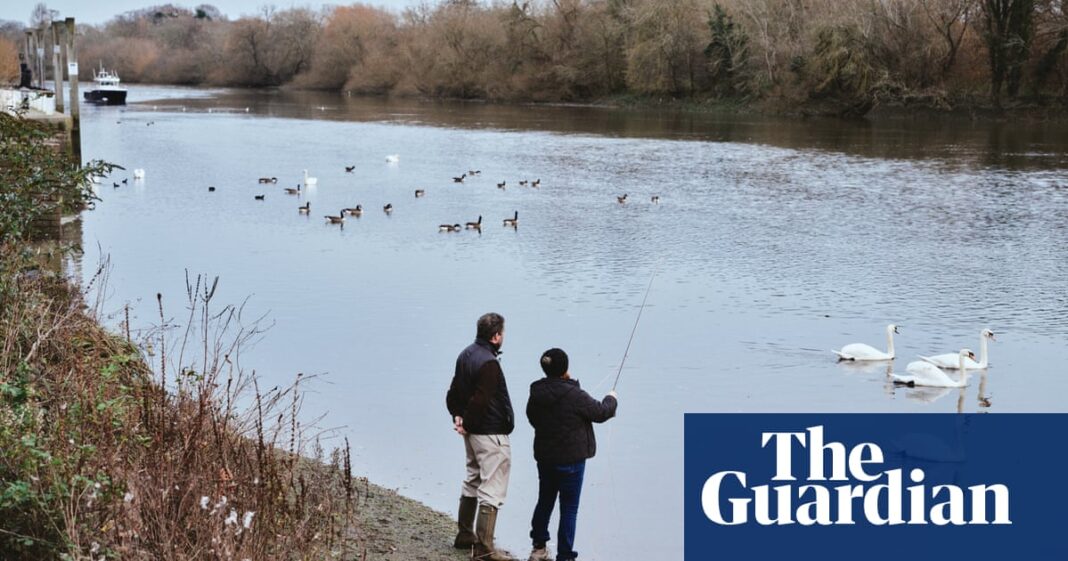Fishing has been one of those things, like pottery classes, or going on a yoga retreat in Ibiza, that I’ve never tried but envied from afar. People doing those things look calm, focused. The very things a hobby should bring. They don’t look like people whose minds are fraught with deadlines, meetings and calls, and an inbox where emails tick up manically.
So on a cold December morning I’m chasing calmness, standing at the banks of the River Thames near Syon Park in the west London borough of Hounslow, and focusing hard on flinging line across the brown water, with a 9ft, surprisingly light, fly-fishing rod (with a number 5 line since you ask).
With the tide coming in over my boots and the swans sliding closer in that half-elegant, half-menacing way that they do, this doesn’t feel like the classic sport of the elite.
“By no means is it now. It’s very accessible,” says Robin Elwes, of Sportfish, who is my instructor for the afternoon. A hugely experienced fisher, he is a passionate advocate for fly-fishing.
“It is easy to pick up. It takes all ages, it takes all personalities.
“There’s an awful lot of men who do it, and I wish there were more women and I wish a lot more children would turn to it and get themselves off their phones or laptops or whatever.”
It’s certainly addictive. I love the methodical simplicity of the casting instructions, lots of “lift”, “stop” and “push and pull” that penetrate the most busy of heads. It is oddly restful.
“Casting is not a great muscle movement. You don’t have to cast for miles and the rod’s an extension of your forearm, not your wrist,” says Elwes.
I’m practising without a hook so no danger of catching anything today. That suits me fine. The Guardian photographer shares a lurid tale of being put off fishing for life after being expected to beat a poor landed fish to death in a boat.
But if I’m going to eat fish then surely I should be able to catch it? That’s absolutely the idea, says Elwes.
“I’m happy to put fish back, take what you need and leave the rest,” he says.
after newsletter promotion
He has been fishing, he says, since he could walk. “My grandfather took me, my mum taught me and my father paid for me, so I was lucky. Most of the holidays I remember involved fishing somewhere. It’s the love of my life, after my wife and family, as well as my bread and butter.”
Being outside is a huge part of fishing, being by the river is calming even in the middle of the biggest conurbation in the UK. It’s quickly possible to zone out the noise of flights taking off from Heathrow and focus on the casting and the slow moving water.
A fly-fishing starter set up can be bought new for under £100. “You can spend a fortune and still catch the same fish,” says Elwes, who is fast becoming my new mindfulness guru.
“You don’t have to spend money on it, you don’t have to visit all sorts of exotic locations. You can go fly-fishing for free in places, you can go fly-fishing in the sea.
“Once you’ve got the basics, get out and get on with it. Now cast away.”
So I do.
Robin Elwes can be contacted at Sportfish (an hour’s casting lesson is £50). For more fishing lessons, see fishingbreaks.co.uk. Find out more about fishing rules and where and when you can fish at gov.uk


